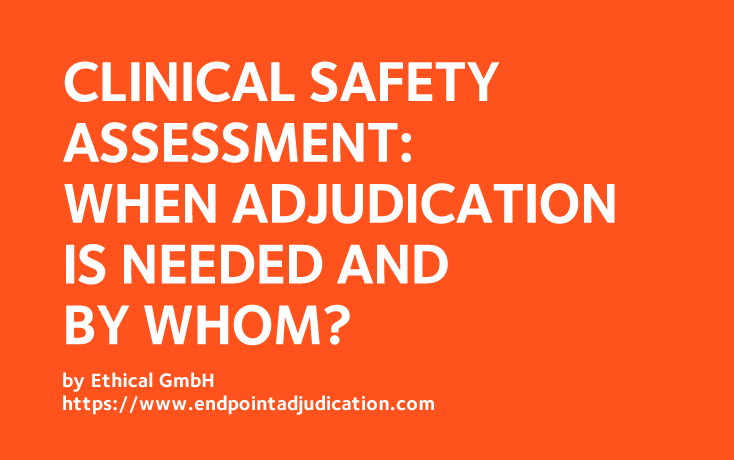Adjudication of safety endpoints are needed every time adverse effects can be expected related to the nature of a particular drug or device and based on previous experience. A specific safety assessment plan must be established compliant with regulations such as FDA and other agencies’ guidelines and following international standards such as clinical trial imaging endpoint process standards to monitor these effects, if possible by an independent panel of experts.
Clinical trials must follow very specific rules of conduct and have a precise purpose: they must be conducted according to Good Clinical Practice (GCP), a set of rules intended to protect participating human subjects from potential harm, while their purpose is to demonstrate the efficacy and safety of new drugs.
Efficacy endpoints are established to specifically support the claims about the drugs’ beneficial effects and safety assessments, usually more generic, seek to capture any possible unwanted effects. However, a general reporting of adverse events may not be sufficient for the good monitoring of the treatment’s safety; in several cases, the safety monitoring during new drugs development has failed to reveal serious risks, mostly cardiovascular, that emerged later during the widespread use of the drugs.
A specific safety assessment process is now often required to detect and monitor particular types of risks.
This includes the definition of Adverse Events of Special Interest (AESI) that are assessed, followed closely and reported together with the serious adverse events (SAE) by drug safety.
In some cases, a Clinical Endpoint Adjudication process is established to ensure the blinded review and assessment of selected events by a committee of independent experts.
These independent reviews avoid bias due to various factors, especially in those cases where blinding is not possible (e.g. studies on medical devices) or personal interpretation is involved (e.g. medical image assessment). In the latter case, although there are established clinical trial imaging endpoint process standards, individual radiologists may interpret in a different, and sometimes biased, way the images collected during a study. A well-organized Endpoint Adjudication process allows for a uniform application of the clinical trial imaging endpoint process standards, thus ensuring impartial assessment of the events.
DOWNLOAD NOW THE FREE ENDPOINT ADJUDICATION HANDBOOK
The Complete Manual / Reference Book (34 pages) with all the topics related to the Independent Endpoint Adjudication Committees Management




